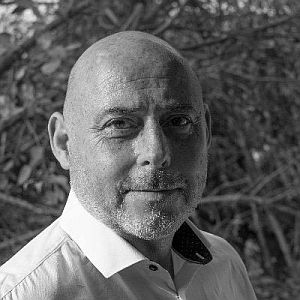Silence In February
The first lockdown and the following restrictions due to the pandemic last year had at least one unforeseen positive consequence: a drastic reduction in air pollution, with less cars on Delhi’s streets, less construction work and more people working from home -and let’s hope that this positive effect will give the Government and the Private sector a lot of good ideas about how to incentivise the development of electric vehicles, increase safe and clean public transport, control more polluting industries and encourage working from home!
This time round, I couldn’t help but notice a major effect on another type of pollution- noise.
From evening until morning, and for every week-end in January, what amazed me was the silence emanating from outdoors. A strange, dense absence of noise rising from the streets: no cars’ honking, no motorbikes without exhaust pipes, no wallah’s shouting, no casual but very loud conversations between neighbours… as if humanity had disappeared from the streets, and left them to nature, and to wildlife…
I had never noticed before how many birds were living around our flat, I had never had the opportunity of hearing them before. Occasionally, it is true that I heard some dogs barking, but it was only part of the background noise of the city, and indeed, these dogs are so domesticated, that they almost belong to the Human way of life.
One Saturday in particular, maybe the second of the week-end curfew, I woke up because of the silence. When I opened my eyes, I didn’t really understand: the silence was so thick that it became troubling, because it was not habitual, and then I started to notice the light outdoors; the total absence of noise was already weird but at least understandable in the middle of the darkness, but the combination of silence and light was not expected. Was it an especially bright full moon? Did the Delhi municipality have some desire to flood the street with more light than usual? I was confused and then I noticed the time: 7 am. That explained the light, but certainly not the silence, thick, surreal, worrying. After a short time, however, I realised that this silence was not in fact complete: nearby sounds began to slip through – a dog, out of view began to bark. I hard croaking birds, and the screech of a cat…; I looked out of the window to see monkeys swinging from trees to balcony, dogs beneath protesting their presence, cats scampering out of reach, birds twittering in a flurry to protect their nests. I was in not a scene in a dystopian film, it was Saturday, 15th January in Delhi, the second week-end of curfew, set up by Delhi’s authorities to try to slow down the contagion of the new Omicron variant.
The previous month of December, I was planning, along with my holidays, the cultural and pedagogical calendar of the Alliance française for 2022. The idea was to resume the maximum of activities off line and, according to a survey, almost three quarters of the new students who were ready to start learning French wanted to do it “in the flesh”: with a teacher in front of them, with comrades next to them, with a cafeteria to chat and to flirt in. Well, we all know that the beginning of this New Year hasn’t been kind to optimistic people: a new letter of the Greek alphabet came to disrupt plans and kill hope, or as I stay optimistic, I will say to postpone our short term programmes.
And indeed, things have changed since the tragic second wave of last spring when so many people became ill, died, lost loved ones, or their income, their jobs, and saw their future jeopardised by COVID 19.
Today, we have vaccines, and in India the health system seems to be better prepared to face, if necessary, an increase in hospitalisation; so, even if we cannot be complacent, we need to show some confidence in the future, firstly because of the capacity of resilience showed by so many people, secondly because as a Human is a social animal: the silence is of course quite nice but only for so long…
